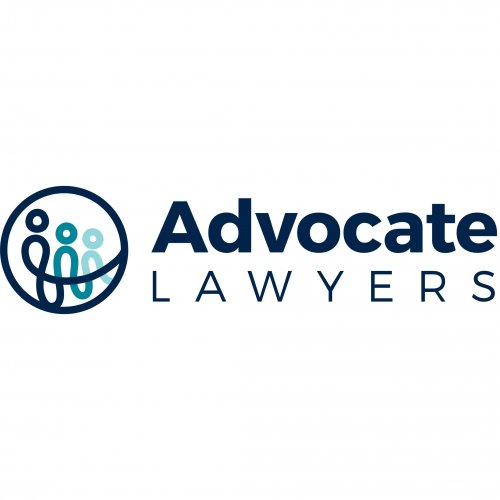Best Nonprofit & Charitable Organizations Lawyers in Australia
Share your needs with us, get contacted by law firms.
Free. Takes 2 min.
Or refine your search by selecting a city:
List of the best lawyers in Australia
About Nonprofit & Charitable Organizations Law in Australia
Nonprofit and charitable organizations play a crucial role in Australian society by addressing various social, environmental, and cultural needs. These organizations operate within a structured legal framework designed to ensure transparency, accountability, and proper use of resources. Nonprofit entities include associations, charities, foundations, and more, each having specific legal obligations and benefits under Australian law. The main governing body overseeing charities is the Australian Charities and Not-for-profits Commission (ACNC), which ensures compliance with established legal and ethical standards.
Why You May Need a Lawyer
While establishing or running a nonprofit or charitable organization, you might encounter several legal challenges where the counsel of a lawyer could be invaluable. Common situations include:
- Formation and Registration: Navigating the complex process of setting up a nonprofit, including understanding the structure options and obtaining charitable status.
- Compliance: Ensuring ongoing compliance with both federal and state regulations, including financial reporting and governance standards.
- Taxation: Understanding eligibility for tax concessions and ensuring proper application of these tax benefits.
- Employment: Advising on employment law to manage staff and volunteers effectively and lawfully.
- Contracts and Agreements: Drafting and reviewing contracts, including those related to fundraising, sponsorships, and partnerships.
- Disputes: Resolving conflicts internally or externally with stakeholders, partners, or government bodies.
Local Laws Overview
The legal landscape for nonprofit and charitable organizations in Australia involves both federal and state legislation. Key elements include:
- Australian Charities and Not-for-profits Commission (ACNC) Act 2012: Establishes the ACNC and sets out the regulation and governance requirements for registered charities.
- Associations Incorporation Act: Provides the framework for forming an incorporated association, including rules on governance and decision-making.
- Corporations Act 2001: Applicable to companies limited by guarantee, often used as a structure for larger nonprofits.
- Taxation Laws: Organizations must comply with taxation laws to benefit from tax exemptions and other concessions. Understanding deductible gift recipient (DGR) status and GST obligations is critical in this context.
Frequently Asked Questions
What is the difference between a nonprofit and a charity?
A nonprofit organization is structured to not distribute profits to members, whereas a charity needs to have a charitable purpose and meet additional legal standards to be recognized as such.
How do I start a nonprofit organization in Australia?
This involves choosing a suitable structure, registering the entity with the appropriate state or federal bodies, and, if applicable, applying for registration with the ACNC.
What are the tax benefits available for charities?
Charities may be eligible for various tax concessions including income tax exemption, fringe benefits tax (FBT) rebates, and goods and services tax (GST) benefits.
Do nonprofit organizations need to register with the ACNC?
While not mandatory for all nonprofits, registration with the ACNC is required to be recognized as a charity and to access tax benefits and concessions.
What is a DGR status, and why is it important?
DGR status allows a nonprofit to receive tax-deductible donations, which can enhance its funding opportunities.
Are there different types of charitable organizations?
Yes, there are various types of charities such as public benevolent institutions, health promotion charities, and environmental organizations, each serving different purposes and governed by specific laws.
Can a nonprofit distribute surplus funds to its members?
No, nonprofits are required to reinvest surplus funds back into the organization to further its objectives.
How often do nonprofits need to report to the ACNC?
Charities typically need to submit an Annual Information Statement (AIS) and, if applicable, financial reports to the ACNC.
Are there governance standards nonprofits need to follow?
Yes, there are specific governance standards that require accountability, responsible management, and adherence to charitable purposes.
How can I resolve a dispute within my nonprofit organization?
Disputes can often be resolved through internal mechanisms outlined in the organization’s rules or constitution. If these are insufficient, legal advice should be sought.
Additional Resources
Here are some resources and organizations that can be helpful:
- Australian Charities and Not-for-profits Commission (ACNC): Provides guidance on establishing and managing a charity in Australia.
- Australian Taxation Office (ATO): Offers resources on taxation obligations and concessions for nonprofits.
- Justice Connect: Provides legal help and resources specifically tailored for nonprofits.
- State Associations of Community Legal Centres: Can offer local guidance and support.
Next Steps
If you require legal assistance in setting up or managing a nonprofit or charitable organization, consider these next steps:
- Identify specific areas of need or legal concern within your organization.
- Consult with a lawyer experienced in nonprofit and charity law to explore your options.
- Consider reaching out to relevant bodies such as the ACNC or ATO for guidance on compliance and best practices.
- Utilize available resources, such as online guides or workshops, to enhance your understanding of applicable laws and regulations.
Taking these steps can help ensure that your organization operates within the legal framework and achieves its objectives effectively and ethically.
Lawzana helps you find the best lawyers and law firms in Australia through a curated and pre-screened list of qualified legal professionals. Our platform offers rankings and detailed profiles of attorneys and law firms, allowing you to compare based on practice areas, including Nonprofit & Charitable Organizations, experience, and client feedback.
Each profile includes a description of the firm's areas of practice, client reviews, team members and partners, year of establishment, spoken languages, office locations, contact information, social media presence, and any published articles or resources. Most firms on our platform speak English and are experienced in both local and international legal matters.
Get a quote from top-rated law firms in Australia — quickly, securely, and without unnecessary hassle.
Disclaimer:
The information provided on this page is for general informational purposes only and does not constitute legal advice. While we strive to ensure the accuracy and relevance of the content, legal information may change over time, and interpretations of the law can vary. You should always consult with a qualified legal professional for advice specific to your situation.
We disclaim all liability for actions taken or not taken based on the content of this page. If you believe any information is incorrect or outdated, please contact us, and we will review and update it where appropriate.
Browse nonprofit & charitable organizations law firms by city in Australia
Refine your search by selecting a city.















